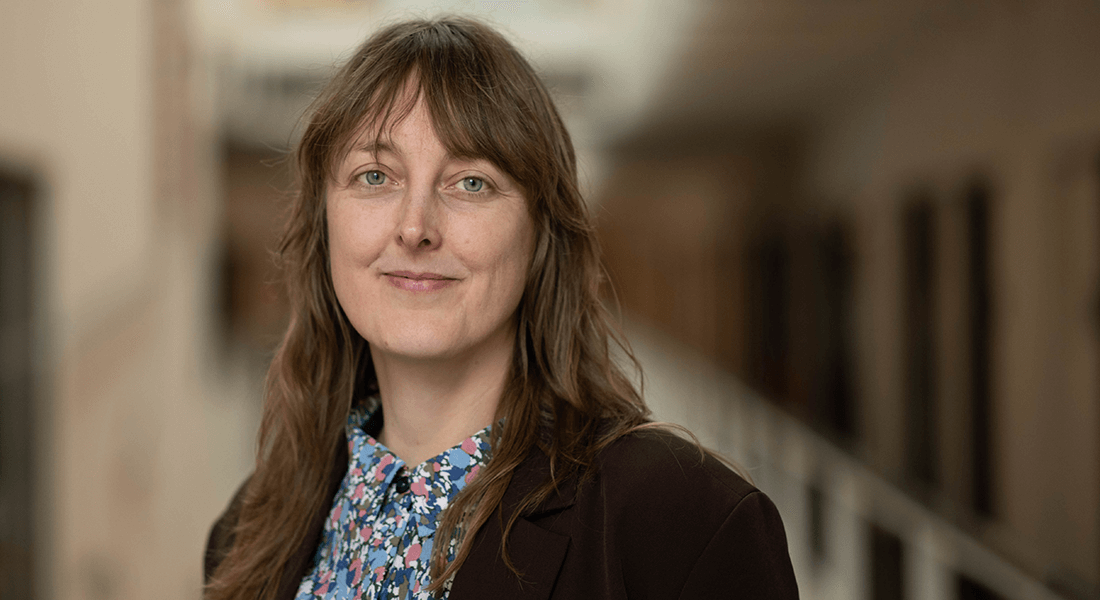Bolette Frydendahl Larsen: The everyday life of people living with HIV/AIDS in Denmark
Meet Bolette Frydendahl Larsen, a postdoc at the Centre for Gender, Sexuality and Difference, University of Copenhagen. Bolette is part of the research project “The Cultural History of AIDS in Denmark” where she studies the everyday life of people living with HIV/AIDS throughout the disease’s history in Denmark.

Tell us about your research
I work as a postdoc in the collaborative research project “The Cultural History of AIDS in Denmark”. My focus in the larger project is to study the everyday life of HIV/AIDS in the affected groups. My colleagues and I have just sent a book manuscript on the history of the AIDS crisis in Denmark in the 1980s and 1990s to our publisher and I have an article on the way on the affective responses to AIDS in the early 1980s.
Why is this research important?
The history of AIDS shows how important it is to understand that disease and illnesses are not only defined in medical, but also in in cultural terms. Therefore I am preoccupied with the uncovering of local differences in the HIV/AIDS epidemic. The particular Danish responses and the activism of people living with HIV/AIDS in Denmark and their allies have affected the possible ways of living and dying with HIV/AIDS in profound ways here. I hope that our research project can contribute to increased awareness to local differences in the history of HIV/AIDS.
Furthermore, the obvious ways in which sexual morals and cultural hierarchies have affected the political responses to AIDS globally and locally offers a critical lens for us to question the framings of epidemics and diseases in general and to analyze the consequences of such framings.
A lot of the histories of HIV/AIDS are very emotionally loaded and I feel privileged that people have shared their stories of loss, shame, grief, mourning, hope, and anger with me.
Which achievements do you hope to see within your research field 10 years from now?
I hope that we will know much more about local histories of AIDS around the globe and that we will know more about the impact of transnational connections between people living with HIV/AIDS and their allies as well as HIV/AIDS health professionals. Lastly, I really hope that more private archives and memoirs of the people who lived through the crisis are collected and preserved for the future and that the research in the local histories will translate into cultural representations such as movies, literature and art.
As a junior scholar with temporary employment I am honestly unsure where I see myself in ten years, but the question reminds me that I need to make a plan! I hope that I will be able to continue to work with themes that spurs my curiosities. Luckily, it is easily spurred.
What advice do you have for junior researchers in global health?
This advice is not specifically for global health scholars, but a more general advice for scholars who have crossed national borders. As a junior scholar who have moved from the Swedish University System to the Danish system, I wish I had been more aware of the differences between the countries earlier. I have taken courses in higher learning in Sweden and have taught a lot of hours in Sweden, which is what counts in hiring processes there but I still have not taken a ‘Pædagogikum’ since it was not a part of my Danish Postdoc. I have now learned that a “Pædagogikum” is often a requirement here, so I am little late to making a plan on how to achieve it. Therefore I would advice other junior scholars to discuss career strategies with senior staff early on in their career.
What is your favourite source of global health inspiration and knowledge?
It is difficult for me to choose since we have collected so many fascination documents and materials for this project, such as campaign material, pamphlets, parliament discussions, medical journals, memoirs and private archives of HIV/AIDS activism. But my favourite source of knowledge to the history of HIV/AIDS are the conversations I have had and the workshops I have conducted with long time survivors of HIV/AIDS during this project. Their stories have captivated me deeply.
Contact
Bolette Frydendahl Larsen, Postdoc, Centre for Gender, Sexuality and Difference, University of Copenhagen
